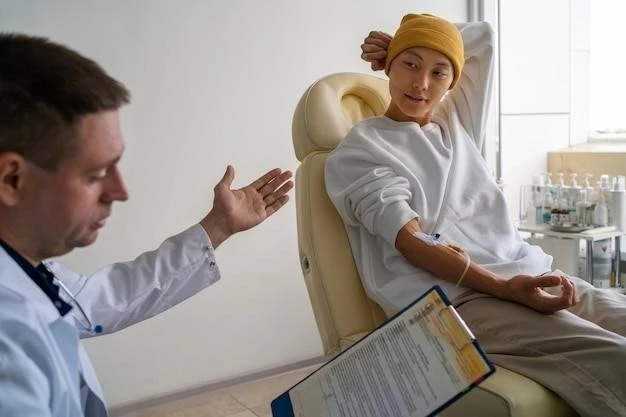Daish–Hardman–Lamont Syndrome
Daish–Hardman–Lamont Syndrome is a rare inherited genetic disorder characterized by mutations in a specific gene. This syndrome presents neurological and developmental symptoms such as speech and motor delay, intellectual disability. Seeking early diagnosis is crucial for initiating appropriate treatment and improving prognosis.
Overview of Daish–Hardman–Lamont Syndrome
Daish–Hardman–Lamont Syndrome is a rare genetic disorder caused by mutations in a specific gene. This syndrome primarily affects the neurological and developmental systems, leading to various symptoms. Individuals with Daish–Hardman–Lamont Syndrome may experience speech and motor delays, as well as intellectual disability.
Due to the genetic nature of this syndrome, it is essential to understand the inheritance pattern within families. Genetic counseling can provide valuable information about the risk of passing on the syndrome to future generations. Early identification of Daish–Hardman–Lamont Syndrome is crucial for implementing appropriate interventions to address the associated symptoms.
Individuals with this syndrome may benefit from a multidisciplinary approach to treatment, involving specialists such as neurologists, speech therapists, and developmental pediatricians. Therapies focusing on speech, motor skills, and cognitive development can help improve quality of life for individuals with Daish–Hardman–Lamont Syndrome.
Research into potential targeted treatments for genetic disorders is ongoing, offering hope for future advancements in managing Daish–Hardman–Lamont Syndrome. By staying informed about the latest developments in the field of genetic disorders, individuals and families affected by this syndrome can make informed decisions about their healthcare and well-being.
Inherited Genetic Disorder
Daish–Hardman–Lamont Syndrome is an inherited genetic disorder characterized by mutations in a specific gene. The inheritance pattern of this syndrome can vary, with some cases being inherited in an autosomal recessive manner.
Individuals with Daish–Hardman–Lamont Syndrome inherit a mutated gene from their parents, which can result in the manifestation of the syndrome’s symptoms. Genetic testing can confirm the presence of these mutations and help in diagnosing the syndrome.
It is important for individuals with a family history of Daish–Hardman–Lamont Syndrome to consider genetic counseling before planning to have children. This counseling can provide valuable information about the risks of passing on the syndrome and options for family planning.
Understanding the genetic basis of Daish–Hardman–Lamont Syndrome is essential for both affected individuals and their families. By learning about the inheritance patterns and genetic implications of the syndrome, individuals can make informed decisions about their healthcare and the well-being of future generations.
Symptoms of Daish–Hardman–Lamont Syndrome
Daish–Hardman–Lamont Syndrome presents a range of symptoms affecting neurological and developmental functions. Individuals with this syndrome may experience speech delays, motor difficulties, and intellectual disability. These symptoms can vary in severity from person to person.
Speech delays in individuals with Daish–Hardman–Lamont Syndrome may manifest as challenges in language development, including expressive and receptive communication skills. Motor difficulties can affect coordination, balance, and fine motor skills, impacting daily activities and mobility.
In addition to speech and motor delays, intellectual disability is a common symptom of Daish–Hardman–Lamont Syndrome. This may result in cognitive challenges, learning difficulties, and delays in reaching developmental milestones.
Other symptoms that individuals with this syndrome may experience include behavioral issues, sensory sensitivities, and social communication challenges. Early identification and intervention for these symptoms can significantly improve the quality of life for individuals with Daish–Hardman–Lamont Syndrome.
It is important for individuals, caregivers, and healthcare providers to be attentive to the varied symptoms of Daish–Hardman–Lamont Syndrome and work together to create a comprehensive care plan that addresses the specific needs of each individual affected by this rare genetic disorder.
Diagnosis of Daish–Hardman–Lamont Syndrome
Diagnosing Daish–Hardman–Lamont Syndrome involves a combination of clinical evaluations and genetic testing. Healthcare providers may conduct a thorough medical history review, physical examinations, and developmental assessments to identify symptoms associated with the syndrome.
Genetic testing plays a crucial role in confirming the presence of mutations in the specific gene linked to Daish–Hardman–Lamont Syndrome. This testing can help establish a definitive diagnosis and provide valuable information for understanding the genetic basis of the condition.
In some cases, additional tests such as imaging studies and neurological evaluations may be recommended to assess the extent of neurological and developmental impairments associated with the syndrome. These tests can help healthcare providers tailor treatment plans to address the individual needs of each patient.
It is important for individuals and families to actively participate in the diagnostic process by providing comprehensive information about symptoms, family medical history, and any concerns they may have. Open communication with healthcare providers can facilitate an accurate and timely diagnosis of Daish–Hardman–Lamont Syndrome.
Seeking a diagnosis as early as possible is essential for initiating appropriate interventions and support services to help manage the symptoms of Daish–Hardman–Lamont Syndrome effectively. By working closely with a multidisciplinary healthcare team, individuals can receive comprehensive care tailored to their specific needs.
Treatment for Daish–Hardman–Lamont Syndrome
Managing Daish–Hardman–Lamont Syndrome involves a multidisciplinary approach aimed at addressing the diverse symptoms associated with the disorder. Treatment plans are typically personalized to meet the individual needs of each patient and may include various therapies and interventions.
Speech therapy plays a crucial role in helping individuals with Daish–Hardman–Lamont Syndrome improve their communication skills and address speech delays. Speech therapists work with patients to enhance language development, articulation, and social communication abilities.
Physical and occupational therapy can help individuals with the syndrome enhance their motor skills, coordination, and overall physical well-being. These therapies focus on improving mobility, balance, and fine motor skills, enabling individuals to perform daily activities with greater independence.
Individuals with Daish–Hardman–Lamont Syndrome may also benefit from educational interventions tailored to their cognitive abilities and learning styles. Special education programs and individualized education plans (IEPs) can provide academic support and accommodations to help individuals reach their full potential.
Psychological support and counseling services may be recommended to help individuals and families cope with the emotional and behavioral challenges associated with Daish–Hardman–Lamont Syndrome. Mental health professionals can offer guidance, support, and strategies for managing stress and promoting well-being.
Regular monitoring by healthcare providers is essential to track the progress of treatment interventions and adjust the management plan as needed. By collaborating with a team of healthcare professionals, individuals with Daish–Hardman–Lamont Syndrome can access comprehensive care and support to enhance their quality of life.
Prognosis of Daish–Hardman–Lamont Syndrome
The prognosis of Daish–Hardman–Lamont Syndrome can vary depending on the severity of symptoms, the age at diagnosis, and the effectiveness of treatment interventions. Early diagnosis and early initiation of appropriate therapies play a crucial role in improving outcomes for individuals with this syndrome.
While Daish–Hardman–Lamont Syndrome is a lifelong condition, individuals can experience improvements in speech, motor skills, and cognitive abilities with the consistent implementation of tailored interventions. Success in managing the symptoms can lead to enhanced independence and quality of life.
Regular follow-up appointments with healthcare providers, including neurologists, speech therapists, and developmental pediatricians, are essential for monitoring progress and adjusting treatment plans as needed. These specialists can offer guidance and support to help individuals with Daish–Hardman–Lamont Syndrome thrive.
Engaging in ongoing therapy sessions, educational programs, and social support networks can further enhance the prognosis for individuals with Daish–Hardman–Lamont Syndrome. Building a strong support system and fostering a positive environment can contribute to overall well-being and development.
Each individual with Daish–Hardman–Lamont Syndrome is unique, and the prognosis may differ based on factors such as the presence of co-occurring conditions, response to treatment, and access to supportive services. By staying proactive in managing the syndrome and seeking comprehensive care, individuals can work towards a positive prognosis and a fulfilling life.
Conclusion
In conclusion, Daish–Hardman–Lamont Syndrome is a rare genetic disorder characterized by mutations in a specific gene, resulting in neurological and developmental challenges. Early identification through genetic testing and comprehensive evaluations is essential for initiating tailored treatment interventions.
Individuals with Daish–Hardman–Lamont Syndrome may experience symptoms such as speech delays, motor difficulties, and intellectual disability. Through a multidisciplinary approach involving speech therapy, physical therapy, educational support, and psychological services, individuals can address these challenges and improve their quality of life.
Genetic counseling is crucial for families affected by Daish–Hardman–Lamont Syndrome, providing information on inheritance patterns and family planning options. By staying informed, proactive, and engaged in the management of this syndrome, individuals can optimize their outcomes and well-being.
Despite the lifelong nature of Daish–Hardman–Lamont Syndrome, early intervention, ongoing support, and a positive environment can positively influence the prognosis. By working collaboratively with healthcare professionals, educators, and support networks, individuals with Daish–Hardman–Lamont Syndrome can thrive and reach their full potential.
Continued research into genetic disorders offers hope for advancements in the treatment and management of conditions like Daish–Hardman–Lamont Syndrome. By advocating for awareness, resources, and support for individuals and families affected by rare genetic disorders, we can foster a more inclusive and understanding society.

